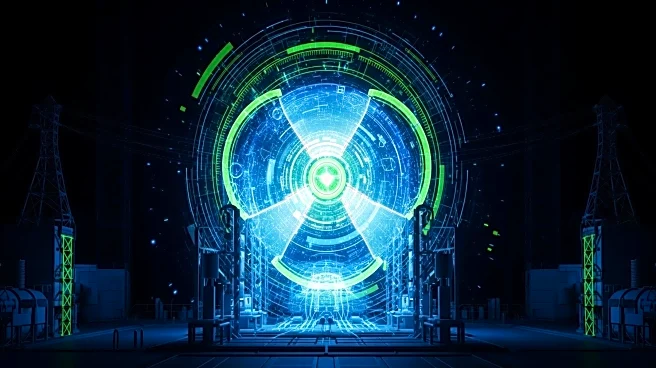What's Happening?
Iran has entered into a $25 billion agreement with Russia's state nuclear corporation, Rosatom, to construct four nuclear power plants in Iran. This development follows the previous collaboration between the two nations that resulted in the Bushehr plant, Iran's only operational nuclear reactor. The memorandum of understanding was signed on Wednesday, with plans to build small nuclear power plants, although the exact number has not been disclosed. The Bushehr plant, located on the Persian Gulf coast, began operations in 2010 after construction was initially halted following the 1979 Islamic Revolution and later revived in 1995 under a deal with Moscow.
Why It's Important?
The agreement signifies a deepening of nuclear cooperation between Iran and Russia, potentially altering geopolitical dynamics in the region. The expansion of Iran's nuclear infrastructure could raise concerns among Western nations regarding nuclear proliferation and regional security. Additionally, the collaboration may strengthen Russia's influence in the Middle East, providing it with strategic leverage. For Iran, the development of additional nuclear power plants could enhance its energy independence and economic growth, reducing reliance on fossil fuels and diversifying its energy portfolio.
What's Next?
The construction of these nuclear power plants will likely proceed under close international scrutiny, given the sensitive nature of nuclear technology and its implications for regional security. Stakeholders, including the United States and European nations, may respond with diplomatic measures or sanctions to address proliferation concerns. Iran and Russia will need to navigate these geopolitical challenges while advancing their nuclear projects. The success of this agreement could lead to further collaborations in nuclear technology between the two countries.









